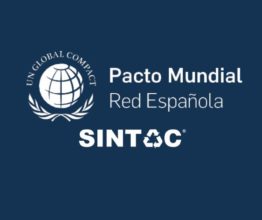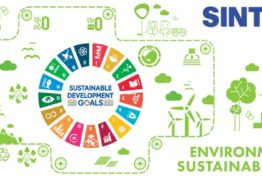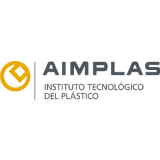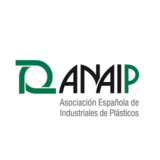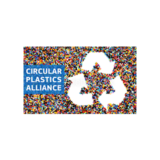SINTAC sponsors at the 1st National Congress on Plastic Recycling organised by ANARPLA
Last Tuesday, SINTAC took part in the great National Congress on Plastic Recycling organised by Anarpla, under the slogan “Secondary Raw Materials Producers and Circular Economy”. The congress was attended by leading experts in the recovery and recycling of this waste stream and 250 key players from the entire value chain.
“With the advent of the European Green Pact, the goal of a climate-neutral Europe by 2050 and a post-pandemic economic recovery based on the green economy and the digital transition, the European Union must accelerate the transition to a circular economy, based on the maximum use of available natural resources,” explained David Eslava, president of Anarpla.
It is true that more than one million tonnes of plastic are recycled annually in Spain, but it is also true that more than four million tonnes are consumed, of which 35% still go to landfill.

Plastic products have become an essential part of almost all areas of life. For good reason: plastic packaging prolongs the shelf life of food and plastic car parts make cars lighter, thus reducing CO2 emissions. In medicine, plastic offers the highest level of hygiene and therefore safety. Despite its many advantages, this important raw material has been discredited for some time now, as plastic waste accumulates over entire areas and floats in the world’s oceans, forming huge plastic carpets. However, there is a solution to this problem. The circular economy plays a crucial role.
The concept of the circular economy is simple in itself. The valuable basic material used for a product is processed at the end of its useful life so that it can be reused. And so on. Not all materials are recyclable. However, recycling works very well with many plastics. A circular economy leads to a drastic reduction in the amount of waste. It also protects the crude oil resource, because by making new products from recycled plastic, no other resources need to be used.

Many countries around the world have already recognised: if the undeniable benefits of plastic products continue to be emphasised, business as usual will not be possible. In its plastics strategy presented in 2018, the EU is therefore focusing on the circular economy. In China’s current five-year plan, the circular economy is in the spotlight. Countries such as India and Indonesia have declared war on plastic waste pollution. There are also recycling schemes in Africa, for example in Nigeria. As criticism of plastics grows among consumers in many places, a number of international brand manufacturers have already committed to recycling. Companies such as Coca-Cola, Ikea, Kraft Heinz or Adidas have pledged to use more plastic from recycled materials in the manufacture of their products or packaging in the future. This is the case of the Chinese company Gree Electric Appliances, one of the largest manufacturers of electronic household appliances, to make its products fully recyclable.

The president of Anarpla explained with data the importance of the plastic recycling sector: “We have companies that are over 40 years old and Anarpla represents 70% of the installed capacity of the sector, which have positioned, among others, Spain as the second country in recycling ratio in Europe; furthermore, thanks to their work, our country is one of the five European states – together with Germany, Italy, United Kingdom and France – whose recycling capacity represents 67% of the total for the continent and today, we occupy second place in recycling capacity for PET, third for LDPE and fourth for HDPE and PP”.

“At Sintac we have always been committed to the circular economy as the only possible vision for the future. We are a big family that has been growing for years, which shows the good health of the recycled plastics sector,” said Sintac CEO Titen Olmos. “We work every day transforming plastic waste into new resources, reducing polluting CO2 emissions in the manufacturing process. Agreements such as the European Green Pact are crucial for the future of the sector, but above all, for the future of the planet and the generations to come”.
